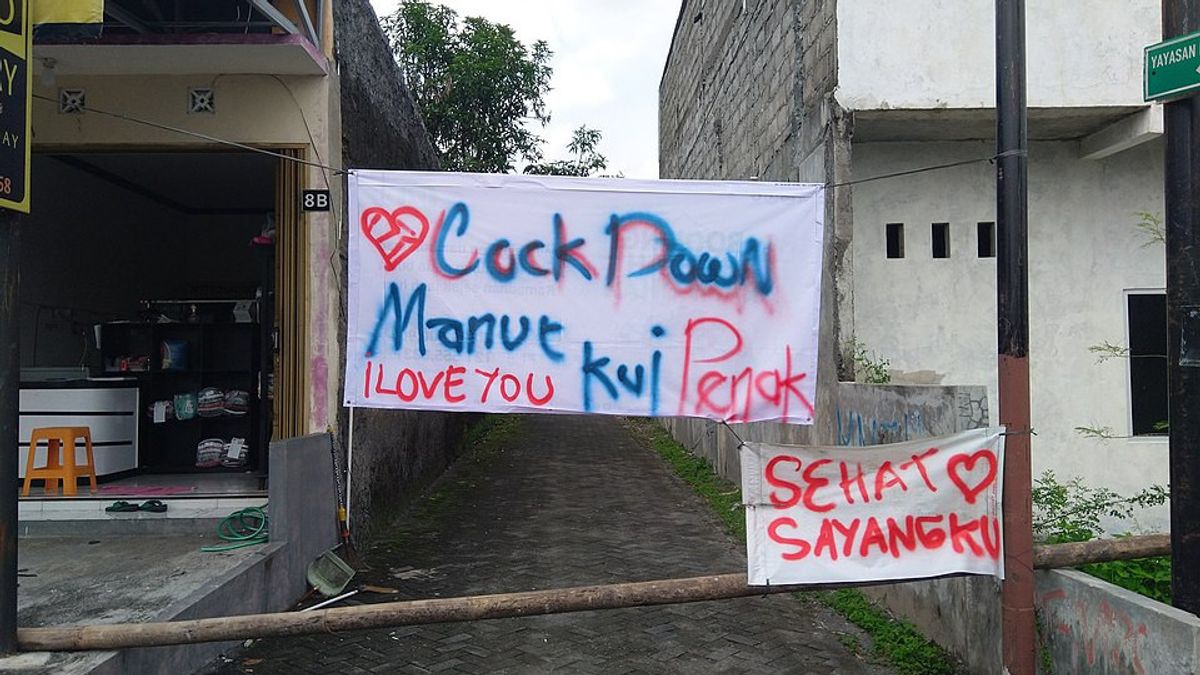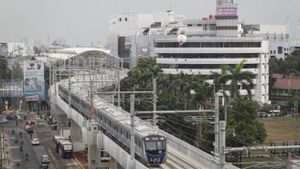JAKARTA - The high number of positive COVID-19 cases in the country has forced 59 countries to prohibit Indonesian citizens from entering their country. Not only that, but the CDC also issued the highest-level warning to its citizens. It reflects the poor handling of COVID-19 cases in Indonesia, which makes the number of cases continue to increase.
As quoted from the 5 September 2020 edition of Tempo Magazine, one of the countries that have limited visits from Indonesia is Malaysia. The ban was issued directly by Malaysian Defense Minister, Ismail Sabri Yaakob, on September 1, and took effect last Monday, September 7.
Not only Indonesia. The Malaysian government also prohibits its citizens from traveling to the Philippines and India. The Malaysian government considers that the positive cases of COVID-19 in the three countries have been increased sharply.
At that time, there were more than 187 thousand positive cases in Indonesia, with 7,800 deaths. The local government doesn't want immigrants from the three countries to infect Malaysian citizens.
Apart from Malaysia, 58 other countries also prohibit Indonesian citizens from entering. For example, Hungary, United Arab Emirates, and South Africa.
According to the Indonesian Ambassador to Hungary, Abdurachman Hudiono Dimas Wahab, the ban was relaxed last August on condition that immigrants undergo two PCR tests. However, starting in September, the ban was again tightened.
Two Indonesian government officials said that since there was a ban on entry from 59 countries, the Indonesian government hasn't stayed silent. They are lobbying the country to relax the rules.
However, many countries still refuse or do not provide certainty. Some of these 59 countries were not only assessed based on the high number of positive cases but also how the Indonesian government's ability to cope with the pandemic.
The United States disease control authority, the CDC, also issued the highest level 3 warning. They warn US citizens to avoid unnecessary travel to Indonesia.
Through its official website, the CDC appealed to tourists who are susceptible to COVID-19, such as older people with a history of certain diseases, to postpone all trips, even the most important ones, to Indonesia. Some examples of important travel include humanitarian work, medical reasons, or family emergencies.
The website explained that the risk of COVID-19 in Indonesia is high. Besides, the CDC also notes that medical resources in Indonesia may also be limited. "If you are sick in Indonesia and need medical care, resources may be limited," wrote.
Nothing
59 countries closed their doors to Indonesian citizens because of the poor handling of the pandemic by the Indonesian government. It makes sense. FKM UI epidemiologist, Pandu Riono even feels that the COVID-19 pandemic in Indonesia has not been handled. In other words, it is still nothin.
"Has the pandemic been handled? No, it hasn't," said Pandu when contacted by VOI. So far, the government only provided economic simulations.
"We should have handled a pandemic. So far, only economic simulations have been disbursed," he said.
According to Pandu, the government should prioritize the pandemic handling first, and then be able to improve the economy again. "Because the community can't be rushed to do many activities, but the transmission is still high. Overcome the pandemic first, then loosen it up," he said.
Pandu gave an example of the Large-Scale Social Restrictions (PSBB) regulations that have not succeeded in reducing the spread, but the restrictions have been relaxed. "So has the pandemic been handled? The answer is no," he said.
Too Late
Meanwhile, supposing that Indonesia will reimpose social restrictions or even lockdown, it would be too late. "If you want the lockdown, it should be six months ago. Then there will be an impact. Now, it's difficult."
Pandu said that, currently, the transmission of the new coronavirus was too broad. So, the implementation of a national lockdown is not possible.
According to Pandu, the best step is to increase the tests, isolation, and implementation of health protocols. The problem is that the application of these three aspects is still far from enough.
"The test is still far from enough. How can we identify positive people who have to be isolated? " said Pandu.
To stop the transmission of COVID-19, Pandu said, we must isolate people who carry the virus and test them with the best equipment. "Don't use a rapid test. So everyone must use PCR and swab tests," he said.
As is known, the number of COVID-19 testing doesn't fulfill WHO standards, namely 1: 1,000 people per week. Even according to the government itself, through the spokesman for the COVID-19 Handling Task Force, Wiku Adisasmito, the number of tests in Indonesia is only 46.58 percent.
Meanwhile, Pandu also provided many other notes about the government's lack of seriousness in dealing with the COVID-19 pandemic. He mentioned about the implementation of health protocols that are still not optimal. It is due to the lack of education on the importance of implementing these health rules for the community.
"Why do people have to wear masks? The reasons must be told. How to use the correct masks? There is no education yet," said Pandu.
Besides, Pandu also criticized Indonesia's health services. He considered that much medical personnel died due to insufficient protection.
Pandu said that the government, especially the Ministry of Health, must work even harder. Several things need to be considered in Indonesia's health services. Namely, the matter of procurement of personal protective equipment (PPE) and procurement of special hospitals for COVID-19.
"Therefore, it means that there is something wrong in our health services. That must be corrected," he concluded.
The English, Chinese, Japanese, Arabic, and French versions are automatically generated by the AI. So there may still be inaccuracies in translating, please always see Indonesian as our main language. (system supported by DigitalSiber.id)










